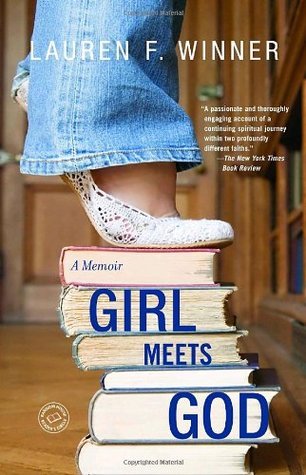
Cut Me Loose: Sin and Salvation After My Ultra-Orthodox Girlhood
Book Description
From the confines of an ultra-Orthodox community to the thrilling chaos of the outside world, Leah Vincent's journey is one of defiance, discovery, and redemption. Wrestling with the stifling rules of her upbringing, she embarks on a quest for identity, love, and freedom that pushes her to the brink. Each choice thrusts her deeper into a world filled with both temptation and turmoil, testing her faith and her spirit. Can one girl shed the shackles of her past and embrace the life she craves, or is the price of liberation too steep to pay?
Quick Book Summary
"Cut Me Loose: Sin and Salvation After My Ultra-Orthodox Girlhood" is Leah Vincent’s raw, courageous memoir about her escape from an insular ultra-Orthodox Jewish community and her tumultuous journey toward self-acceptance. Ostracized by her family after minor infractions, Vincent is thrust into a secular world for which she is utterly unprepared. Battling loneliness and alienation, she grapples with issues of identity, sexuality, and faith, often finding herself in precarious and self-destructive circumstances. Yet, despite myriad setbacks and heartbreaks, Vincent’s unyielding desire to define her own life propels her forward. Ultimately, hers is a testament to resilience: through pain, loss, and ultimately self-empowerment, Vincent crafts a new sense of belonging and claims her personal freedom.
Summary of Key Ideas
Table of Contents
Breaking Free from Fundamentalism
Leah Vincent’s story begins in the strict confines of a Yeshivish ultra-Orthodox family in Pittsburgh, immersed in a culture of stringent rules and unwavering devotion. As a teenager, Leah innocently steps beyond the community’s codes—writing letters to a boy—only to be harshly punished and shunned. This familial rejection thrusts her out of the only world she knows, leaving her reeling from isolation and confusion as she is forced to abandon her religious roots. The trauma of being cut off from her family’s love and the communal support deeply impacts Vincent’s sense of self-worth, compounding her feelings of loss and exile.
The Search for Identity and Belonging
On her own in the secular world, Vincent faces profound culture shock. Lacking basic secular knowledge and social cues, she navigates New York with little guidance or resources. Her longing for connection and validation often leads her into precarious situations. Vincent’s attempts to forge intimacy and seek love result in heartbreak and exploitation, as she struggles to fill the void left by her family's absence. She grapples with forging a new identity in a world that feels both liberating and dangerously unfamiliar, oscillating between hope and desperation.
Navigating Alienation and Rejection
Isolation and alienation become Vincent’s constant companions as she attempts to reinvent herself. She is haunted by the values and guilt ingrained by her upbringing, while simultaneously craving acceptance in her newfound environment. Without a support network, Vincent battles with depression and self-loathing, at times engaging in self-destructive behavior. Her journey reflects not only the inward turmoil of losing one’s community but also the societal obstacles faced by those who depart from tightly-knit religious groups.
Struggles with Self-Destruction and Depression
Despite overwhelming adversity, Vincent gradually begins to reclaim agency over her life. Through small victories—a college education, meaningful friendships, therapy—she finds glimmers of hope. She learns to process her trauma and accept her pain as part of her evolving identity. Vincent’s willingness to confront her vulnerabilities becomes a source of strength, enabling her to break free from cycles of shame and secrecy that once governed her life.
Emergence of Self-Empowerment and Resilience
As Vincent solidifies her independence, she discovers resilience and self-empowerment previously denied to her. She redefines herself on her own terms, learning to cherish her autonomy and capacity for growth. By sharing her story, Vincent not only seeks personal redemption but also offers solidarity and hope to others who have struggled with belonging and faith. Her memoir is both a searing indictment of fundamentalism’s costs and a triumphant testament to human tenacity and the transformative power of self-acceptance.
Download This Summary
Get a free PDF of this summary instantly — no email required.





